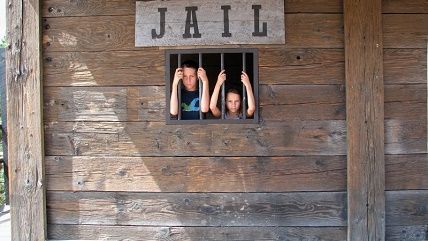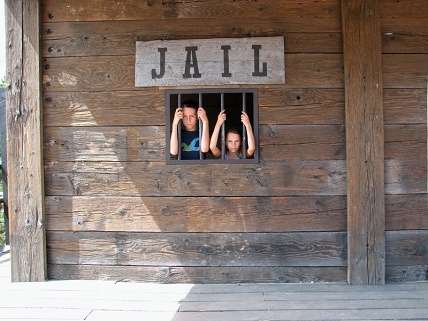Cops Arrest 11-Year-Old Kid for Nude Photos, Claim It's For His Own Good
Someone think of the child (predators)


Police in a Pennsylvania school district have charged at least three kids—one of them just 11 years old—with distributing sexually explicit pictures of other minors. They haven't been sentenced yet, but face juvenile detention, expulsion, and a variety of other life-altering consequences.
This is somehow in their best interests—and the interests of kids everywhere—authorities claim.
The suspected students, who range in age from 11 to 15, are accused of taking, trading, and selling inappropriate photos, according to philly.com:
Victims and participants told investigators that images of child erotica, nudity, child pornography, and pornography had been created, sent, stored, and viewed by students at their homes and in school over the last six months, Tredyffrin Township police said. The students attended Valley Forge and Tredyffrin/Easttown middle schools.
In one incident, a student allegedly offered to sell an explicit image of a classmate to another student. In another, police say, a student took an image of a sex act from the Internet and distributed it to classmates, saying it featured a female student in their schools.
"Incidents such as these are greatly concerning, especially due to its impact on young victims and their families," Police Superintendent Anthony Giaimo said in a statement Tuesday, a day after the charges were filed. "We urge parents to take a very active role in monitoring Internet and cell usage on the part of their children."
Urge parents to engage with their kids and talk to them about appropriate cell phone usage? Great idea! You know what's not a great idea? What the cops are actually doing: pretending kids who swap nude photos are child pornographers and locking them up for it.
And yet the people who make and enforce these laws are always claiming that they have the kids' best interests at heart:
Many of the children in the Tredyffrin case took images of themselves at home with the location settings activated on their phones, [a police spokesperson] said. That means people who view the images, including child predators, would be able to determine where they live.
But again, if the goal is actually to protect kids from child predators (a greatly exaggerated fear), then just scold them for putting each other at risk; there's no need to drag them into the criminal justice system for showing typical levels of teen interest in sex and their own bodies.
The levelling of charges, even juvenile charges, should not be viewed as some low-cost precondition to keeping kids safe, but a horrible, life-derailing consequence in and of itself. Even if it were the case that child predators were a particularly significant threat, and locking kids up the only way to deter them from sharing pictures that attract the predators, I'm not sure the tradeoff would be worth it. But we live in a country where paranoid delusions about safety provide cover for police to enforce absurd laws that make life miserable for kids.


Show Comments (135)